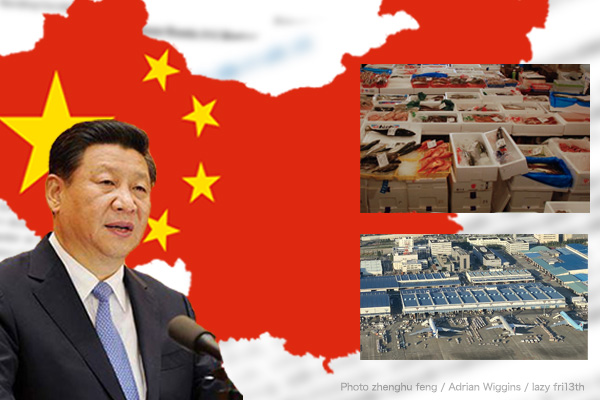Chinese government under President Xi Jinping has taken a series of coercive measures against Japan, demanding that Japanese Prime Minister Sanae Takaichi retract her remarks that a Taiwan contingency could constitute a survival-threatening situation for Japan. The measures include an advisory against travel to Japan and the suspension of Japanese seafood imports. Japan’s industrial community fears that China could also further toughen restrictions on rare earth supplies that are essential for high-tech industries.
Japan should note that the Xi government’s economic coercion is part of an information war called “cognitive warfare” to divide and weaken opponents. Beijing has launched a public opinion campaign against Japan to undermine the support base for the Takaichi government that has come up with a counter-China strategy in contrast to the previous government led by Shigeru Ishiba. If Japanese newspapers and television broadcasters overreact to the Chinese maneuver, they will fall into the trap set by the Xi government. We should calmly and strictly assess the impact of Chinese measures on the Japanese economy.
Domestic travel expansion to offset Chinese advisory
Regarding the impact of China’s advisory against travel to Japan, an economist affiliated with a major Japanese securities house on November 17 released his estimate that Japan’s economic loss over the next one year would reach 1.79 trillion yen, pushing down Japan’s gross domestic product by 0.29%. Japanese newspapers and TVs reported the estimate as it was.
According to the Japan Tourism Agency, Chinese tourists’ actual spending in Japan totaled 1.64 trillion yen between January and September this year and would have reached 0.36 trillion yen between October and December, bringing the annual total to 2 trillion yen, if there had been no travel restrictions from Beijing. The cited annual decline of 1.79 trillion yen merely represents a hypothetical comparison with an optimistic expectation, essentially a pie in the sky, assuming the upward trend in Chinese tourist spending through September would have continued into next year. Bloomberg on November 21 reported a Chinese travel research company’s view that Chinese travel cancellations were concentrating in the next few weeks, while reservations for January next year were stable.
Even assuming a high estimate scenario in which Chinese tourists’ spending in Japan in 2026 declines by 1 trillion yen or 50% from an initial estimate of 2 trillion yen for 2025, the decline would be more than offset by an annual increase of 2.2 trillion yen in Japanese tourists’ domestic travel spending. Japan is a steadily popular travel destination in Hong Kong, Taiwan, Southeast Asia, the United States, and Europe. While Chinese group travelers, who are seen as the biggest factor behind overtourism, are likely to decrease in Japan, tourists from other countries are sure to increase at many Japanese tourist spots.
Japan should calmly reduce dependence on Chinese rare earth
Regarding seafood, the impact of Chinese coercion should be small as most Japanese exporters have already developed overseas markets other than China.
The Xi government subjected rare earths to an export license system in early April. The action was nominally aimed to counter high U.S. tariffs, but was also designed to raise rare earth export prices. Against the backdrop of enormous production overcapacity, China’s rare earth export prices plummeted two-thirds in three years. The prices began to rise in June, but the pressure from overproduction remains strong, making it difficult to cut export volumes. Japanese companies need not panic. They should calmly and steadily implement measures to reduce dependence on China.
Hideo Tamura is a Planning Committee member at the Japan Institute for National Fundamentals and a columnist for the Sankei Shimbun newspaper.


